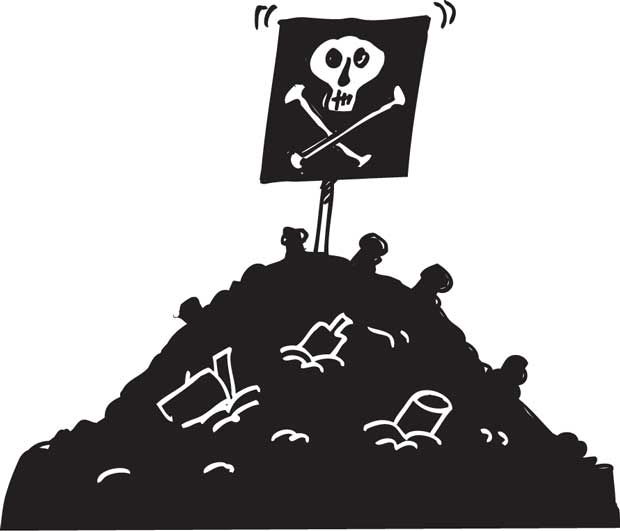Garbage: Don’t play dirty games


At the highest level yesterday, President Maithripala Sirisena had a dialogue on this tragedy with media group owners, editors and high ranking journalists. The President said he would appoint a retired judge to head an independent team to probe what happened and who or which public institution was responsible for the disaster.
We also need to reduce the amount of garbage and also be more careful in separating it into organic garbage, paper or boxes and polythene. Government officials say foreign countries including Japan have offered expertise and financial assistance to set up high tech factories where waste is turned into good, non toxic compost fertilizer or energy to produce electricity and run vehicles. We urge the government to act fast in setting up such factories so that rubbish could be turned into wealth and power.

2017-04-21
It is one week after the Meethotamulla garbage dump catastrophe which left 32 dead, scores injured, at least eight missing, hundreds of houses destroyed or damaged and more than thousand people displaced in despair and destitution. Various postmortem examinations are being held at different levels to identify who or which institution was responsible or accountable and what needs to be done now, not only to prevent a similar calamity but to turn it into a blessing. There may be a lot of garbage politics in this tragedy but we need to be aware that our hands are bloody and dirty because in different degrees we have failed to act as responsible eco-friendly citizens.

At the highest level yesterday, President Maithripala Sirisena had a dialogue on this tragedy with media group owners, editors and high ranking journalists. The President said he would appoint a retired judge to head an independent team to probe what happened and who or which public institution was responsible for the disaster.
As in most cases, the best course of action would be to find solutions and not find fault. As a first step, no more garbage is being dumped at Meethotamulla. Instead the government decided to dump Colombo City’s garbage at Karadiyana in Piliyandala and in Dompe where there are dumping sites which may not cause much harm to the people or the environment. But the area people, some of whom were apparently provoked by petty party politicians, strongly protested and the Colombo Municipal garbage trucks were forced to turn back.
Our thinking on this issue needs to be rational and balanced. Take Colombo City for example. Its population is estimated at around 400,000 but on working days some 600,000 people are known to come to the City for work and other purposes. This number excludes schoolchildren. The garbage including tens of thousands of polythene lunch wrappers and bags are brought into the City and dumped there. So Colombo City is not the main source of garbage. But people of other districts do not allow garbage from Colombo City to be dumped there though the areas chosen are relatively safe.
It is also known that people use and dump some 20 million polythene lunch wrappers or bags every day. This polythene is not biodegradable and cause soil infertility wherever it is dumped. Decades ago before the easy going polythene era, most people used marketing bags made of cloth and sometimes used them for months or years without causing damage to the environment. Today, small items or big items are sold in polythene bags at supermarkets, grocery stores and even in small boutiques.
It is also known that people use and dump some 20 million polythene lunch wrappers or bags every day. This polythene is not biodegradable and cause soil infertility wherever it is dumped. Decades ago before the easy going polythene era, most people used marketing bags made of cloth and sometimes used them for months or years without causing damage to the environment. Today, small items or big items are sold in polythene bags at supermarkets, grocery stores and even in small boutiques.
These and related issues show that most people need to change their silly attitudes towards the use of so-called ‘sili, sili’ bags and garbage dumping. Otherwise we will cause serious damage to the environment and we cannot call ourselves responsible or eco-friendly citizens.
We also need to reduce the amount of garbage and also be more careful in separating it into organic garbage, paper or boxes and polythene. Government officials say foreign countries including Japan have offered expertise and financial assistance to set up high tech factories where waste is turned into good, non toxic compost fertilizer or energy to produce electricity and run vehicles. We urge the government to act fast in setting up such factories so that rubbish could be turned into wealth and power.
President Sirisena and Prime Minister Ranil Wickremesinghe have also called for the media to be responsible in their coverage of the garbage crisis and environmental or economic policies. The Prime Minister quipped that it was not only the people who were dumping garbage, some media groups were also dumping garbage news apparently to boost those who had been sent to the garbage dumps of history. The President also reprimanded some media groups which were saying that the economy was on the brink of collapse. He said Sri Lanka was well on its way to sustainable economic growth.
Overall, we also call for responsible and collective action to put the country first on environmental and economic issues instead of playing garbage politics when our hands are dirty with agendas for personal gain or glory. In that way we could build a smart Lanka for our children and our children’s children.
